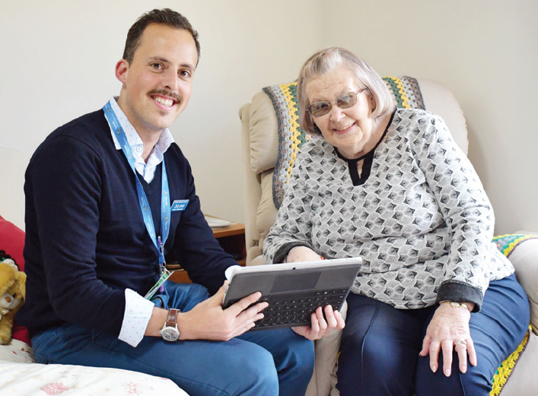Tanunda Lutheran Home Tackling Residents' Complex Medication Needs

We are now seeing residents move in to aged care older, sicker and requiring more clinical care than ever before. With residential aged care homes providing an increasing number of clinical services and caring for more complex residents than ever before, it is imperative that they upskill their existing staff as well as include more allied health practitioners in their teams—particularly pharmacists.
Current funding for pharmacists is only available on a fee-for-service basis. For an average 100-bed home, funding allows a visit of one day per month (or less). For most residents, this is inadequate.
The Aged Care Royal Commission highlighted that medication management, especially in regards to psychotropic medications, should be a top priority, and a report by the Pharmaceutical Society of Australia identified that 98 per cent of people in residential aged care have at least one medication related problem.
On-site clinical pharmacist
Tanunda Lutheran Home (TLH) decided to employ an embedded pharmacist as part of its clinical aged care team to manage the increasingly complex medication related problems and questions faced by residential aged care homes.
The on-site pharmacist is responsible for the quality use of medicines at TLH, facilitating this though clinical services such as case conferencing and providing clinical support to visiting GPs; providing regular and tailored information and training to staff members; and empowering residents and their families to make truly informed decisions about their medications and their care through consultation and medicines information.
The pharmacist has been able to provide information about a variety of medication related issues such as psychotropic use and deprescribing, but most impactful has been around palliative care. End-of-life can be a confronting time for families, full of changes and emotion.
With an embedded pharmacist, families at TLH can source accurate and tailored information about the use of medicines at the end of life, particularly around the use of terminal phase medication. This information has enabled families to act in the best interests of their loved ones and helped to reduce suffering and facilitate a good death as much as possible.
Results speak for themselves
Since TLH employed an embedded aged care pharmacist they have managed to reduce and maintain their overall antipsychotic usage—from 14 per cent down to 7 per cent across all residents at the home. Primarily, this was achieved through the action of the pharmacist through regular review with GPs and residents, as well as training and education for nursing staff.
This is an innovative and improved model of pharmacist input that solves the problem of funding for pharmacists, with TLH taking a pro-active approach. Utilising existing funding models (Residential Medication Management Review and Quality Use of Medicines Programs) helped TLH create a permanent role for a pharmacist in its clinical care team.
Recognised by industry
Tanunda Lutheran Home was recognised as a finalist in the Increasing Access to Care and Services Category in the 2021 innovAGEING National Awards.
